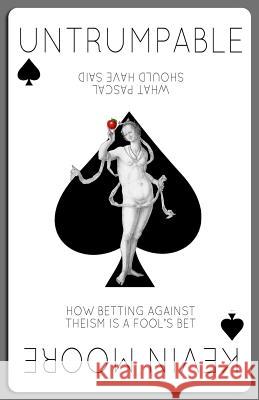Untrumpable: How Betting Against Theism Is A Fool's Bet Or What Pascal Should Have Said » książka
Untrumpable: How Betting Against Theism Is A Fool's Bet Or What Pascal Should Have Said
ISBN-13: 9780990620204 / Angielski / Miękka / 2014 / 112 str.
Untrumpable: How Betting Against Theism Is A Fool's Bet Or What Pascal Should Have Said
ISBN-13: 9780990620204 / Angielski / Miękka / 2014 / 112 str.
(netto: 95,03 VAT: 5%)
Najniższa cena z 30 dni: 99,50
ok. 16-18 dni roboczych
Dostawa w 2026 r.
Darmowa dostawa!
One of the most important questions upon which man will ever be forced to wager is this: given our uncertainty about the afterlife, so what? In this book, Moore argues that our uncertainty about the afterlife should matter to us greatly, if we are wise. And in order to complete the failed task that Blaise Pascal initiated, the provision of a sound and valid argument about how to wager on the afterlife under uncertainty, Moore argues for and defends the following new argument. In sum: 1. Foolishness occurs under the following conditions: (a) when one is aware of a severe threat to his or her most relevant interest, (b) when one knows how to minimize the risks to such an interest against such a threat and (c) when, in the face of such a threat-awareness, one flouts his or her risk minimization know-how, opting to hope solely in luck's favor. 2.The possibility of a just and severely retributive afterlife counts as a real and severe threat to our most relevant interests (and it is the only sort of afterlife possibility that does so). 3. Despite our uncertainty about the afterlife, we know how to minimize our risks against such a threat. 4. Therefore, given both that we are aware of such a severe threat to our most relevant interest and that we know how to minimize our risks to such, whenever we choose not to live in accordance with such know-how we are acting foolishly. After carefully building his case for this conclusion, Moore lays out its implications, responds to many foreseeable objections and, in the final chapter, closes with a fitting and uncommon defense of Christianity as a beautiful and wise hope.











